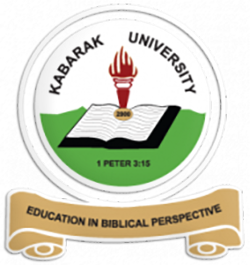By Laureen Mukami Nyamu
The taxation of churches has been a conundrum that has generated polarising views in many Christian-affiliated societies. The taxation of churches is a nuanced and complex problem that necessitates balancing the right to religious freedom and the need to ensure that religious institutions operate in a transparent and accountable manner. The right to conscience, belief and opinion underscores church autonomy ensuring that church activities are free from state interference, thus the justification of the tax exemption enjoyed by churches.
Churches enjoy various tax exemptions such as the exemption from paying income tax on tithes, offerings and donations. This income is exempt from taxation since it does not fall within the scope of taxable income elaborated under section 3 of the Income Tax Act.[i] This position was reinforced by the High Court in Commissioner of Domestic Taxes v Thika Road Baptist Church Ministries.[ii] Tax exemption on income tax raises the greatest controversy, giving rise to debate on the taxation of churches.
On one hand, those against the income tax exemption argue that the proliferation of churches and the subsequent commodification of the gospel make churches profit-making entities. This necessitates their taxation since the exemption would disproportionately favor churches as compared to other business entities which do not enjoy similar exemptions. In 2020 for instance, Christ is the Answer Ministries (CITAM) recorded a total income of Ksh 1.93 Billion. The income rose to 2.53 Billion in 2021.[iii] CITAM raised 26.5 million from investments. This Church is exempt from paying income tax, which can be construed as promoting inequality between CITAM and other business entities.
In his book Wealth of Nations, Adam Smith argues that religions provide religious goods. These goods interact within a market of competing religious groups, competing to meet the religious demands of different religious consumers. Since the market is competitive, the government should intervene.[iv] The intervention could take the form of taxation.
Conversely, those in support of the exemption argue that churches are altruistic in nature and the income raised through tithes and offerings is aimed at supporting church welfare outreach programmes such as hospitals, children homes and schools.[v] Thus, the exemption should stand since it is geared towards achieving the common good. Additionally, those in support of the exemption argue that it can be construed as the state's way of contributing to the spiritual and moral objectives of the nation's churches.[vi]
Despite the tax exemption on income tax, churches are not exempt from tax obligations. Churches are still required to fulfill tax obligations such as filing annual returns and remitting PAYE.[vii] Furthermore, although tithes, offerings and donations are exempt from income tax, the income realised by churches while conducting other businesses unrelated to religious activities such as income from businesses is not exempt from income tax.[viii]
Paragraph 10 of the First Schedule of the Income Tax Act stipulates that gains or profits from the business activities of organisations such as churches are exempt from taxation if they are used for religious purposes,[ix] or by their beneficiaries for work in connection to religious purposes[x] or, are rent incomes.[xi] This means that if the profits realised by churches are ploughed back to be used by members, the tax exemption applies.[xii] However, this provision is problematic since it does not stipulate how the commissioner of taxes can determine whether the ploughed back profits are used solely for religious purposes by church members.
For a church to be exempt from income tax, it has to be registered as a society under the Societies Act No. 4 of 1968.[xiii] After being registered as a society, the church through its appointed trustees can apply for a tax exemption certificate.[xiv] The exemption is valid for five years and may be revoked by the Commissioner for a just cause.[xv]
But what constitutes a 'just cause'? As mentioned earlier, the taxation of churches presents a complex problem that requires balancing the right to religious freedom and the need to achieve transparency and accountability. Might the lack of clear provisions as to what the 'just cause' is give leeway for Caeser to target churches thereby infringing on religious freedom? Given that transparency, integrity and transparency are among the national values and principles of governance espoused under Article 10 of the Constitution, [xvi] does Paragraph 10(b) of the First Schedule of the Income Tax Act provide a loophole for unscrupulous churches to avoid taxation? Furthermore, given that many churches are no longer altruistic but profit-making entities, how will the law ensure they fulfil their tax obligations? These are the questions we need to answer if we are to arrive at a middle ground on the issue of the taxation of churches in Kenya.
[i] Taxdon, 'Taxation of churches', Taxdon.co.ke, 16 November 2022.
[ii] Commissioner of Domestic Taxes v Thika Road Baptist Church Ministries, Tax Appeal E024 of 2021, Judgment of the High Court at Nairobi, 31 May 2022, eKLR, para 18.
[iii] Brian Okoth, 'CITAM Church raised Sh1.6b from tithe in 2021 as income rises to Sh2.5b' The Standard, 11 November 2022.
[iv] Adam Smith, 'Wealth of nations', Coisimo Publications, 1901.
[v] Alphonsus Beni, Juliet Bonoeng, Bernard Oduro, 'Phillosophy of taxation and tax exemptions of churches in the Ejisu Municipaloity of Ghana', 10(2) International Journal of Innovative Research and Development.
[vi] Boris I. Bittker, 'Churches, taxes and the Constitution', 78(8) The Yale Law Journal.
[vii] Taxdon, 'Taxation of churches', Taxdon.co.ke, 16 November 2022.
[viii] Taxdon, 'Taxation of churches', Taxdon.co.ke, 16 November 2022.
[ix] Income Tax Act (No 16 of 1973), First Schedule, Paragraph 10(b)(i).
[x] Income Tax Act (No 16 of 1973), First Schedule, Paragraph 10(b) (ii).
[xi] Income Tax Act (No 16 of 1973), First Schedule, Paragraph 10(b) (iii).
[xii] Taxdon, 'Taxation of churches', Taxdon.co.ke, 16 November 2022.
[xiii] Odiemo, 'The debate for and against state regulation of churches in Kenya'.
[xiv] Odiemo, 'The debate for and against state regulation of churches in Kenya'.
[xv] Income Tax Act(No 16 of 1973), First Schedule, Paragraph 10(b)
[xvi] Constitution of Kenya (2010), Article 10(2).



